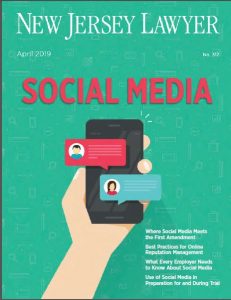Because UFADAA laws (Uniform Fiduciary Access to Digital Assets Act) are still relatively new in most states, many wills, trusts and powers of attorneys may not have UFADAA specific provisions. Attorneys at Hartman & Winnicki, P.C. have been providing estate planning advice for more than 30 years and technology and Internet law counseling for almost 20 years.
In most cases we can quickly determine if you live in a state that has enacted UFADAA and if your estate planning documents contain UFAADA specific provisions. If you are interested in consulting with Hartman & Winnicki, P.C., to discuss whether you live in a UFADAA complaint state and review of your estate planning documents to determine if they contain UFADAA specific provisions, click http://ravin.com/contact/ . (Do not send any documents or confidential information).
(Attorney Advertising)
